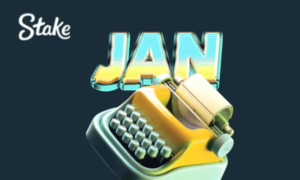New Jersey Regulators Hit Bitstrade With Cease & Desist Order
Yet another Ponzi scheme that relies on the success of cryptocurrency markets and FOMO to swindle people, was uncovered this week. Regulators issued a cease & desist order against Bitstrade

Over the past few years, cryptocurrency and Bitcoin have shown tremendous growth potential. As the price of Bitcoin and other cryptocurrencies advances, regulators have been paying closer attention to companies, ICOs and other actors launching services in the space. Scammers have also found a niche in the space, preying mostly on users who are just coming into the space and do not have enough knowledge to tell solid projects from scams. This has created an environment in which regulators are increasingly going after some services – whether they are legitimate or not. Some however, seem to be Ponzi schemes. Among them is Bitstrade, which just got a cease and desist order from New Jersey regulators.
Unlicensed to offer Digital securities
Following the recent Bitconnect’s Ponzi scheme which has handed a cease and desist order from Texas securities, Local US regulators of the state New Jersey exposed Bitstrade. An emergency order against Bitstrade was issued and the authorities are now conducting an investigation. The official release by New Jersey Division of Consumer Affairs and the Attorney General Gurbir S. Grewal on February 9, 2018, alleges that the Bitstrade has been violating the State’s Uniform Securities Law by selling unregistered securities. Bitstrade is an online bitcoin investment firm which collects payment only in Bitcoin. It promises investors a 10% percent daily return without a guaranteed base for investment profit.
Bitstrade Red Flags
A promise for fixed daily returns is always a red flag. Besides the false commitment, Bitstrade fails to provide “key material facts” including physical business location, investment risks and the names of executives, which is usually an indication of criminal activity. Although, the website lists business addresses in Redland, California and Scottsdale, Arizona, both are false.
New Jersey Attorney General Declarations
New Jersey’s Attorney General Gurbir Grewal declared that “The Bureau’s action today reinforces our commitment to protecting investors as they navigate the uncharted and mostly unregulated domain of cryptocurrency-related investments.” He added that “We want to make sure that investors tempted to cash in on the cryptocurrency rage aren’t being lured into sending funds to an anonymous internet entity without knowing where the funds are going or how they’ll be used.”
False Commitment and False Operation
Bitstrade’s website offers an investment pool that collects “multiple lower value investments and groups them into one single HUGE investment using those funds to trade on the stock market and generate outstanding returns.” Bitstrade claims to “share back a portion of our revenue” to investors, the Bureau explains. Bitstrade also set up a “profit calculator” that has no basis to guarantee possible returns on investment. As per the website, profit calculator enables investors to calculate profit, the rate of returns and term length. Investors can access Bitstrade’s securities for as little as $10.
Words of Caution from Consumer Affairs
Sharon M. Joyce, Acting Director of the Division of Consumer Affairs, asked investors to be “extra vigilant” when they buy into cryptocurrency investment schemes. The official said: “What makes Bitstrade’s fraudulent offer potentially more harmful for unsophisticated investors is that cryptocurrency is virtually anonymous, so there is no recourse for investors to recoup their losses. Bitstrade is a prime example of a company seeking to capitalize on the cryptocurrency craze,” Joyce concluded.
Bitstrade Ponzi Scheme Give Cryptocurrency a Bad Name
People who are not well-acquainted with the cryptocurrency space are usually vulnerable to Ponzi schemes like Bitstrade. If the scammers manage to catch them, many tend to blame the space after they get swindled. It is important to reiterate that cryptocurrency is all about giving the user the freedom to transact globally on P2P networks. With that freedom comes a great deal of responsibility. Users must understand that holding their private keys themselves and securing them is the only option they have to keep their funds safe. The problem with Bitstrade has nothing to do with anonymity or recourse like Joyce said. It has to do with understanding how the world of cryptocurrency works and being cautious.









